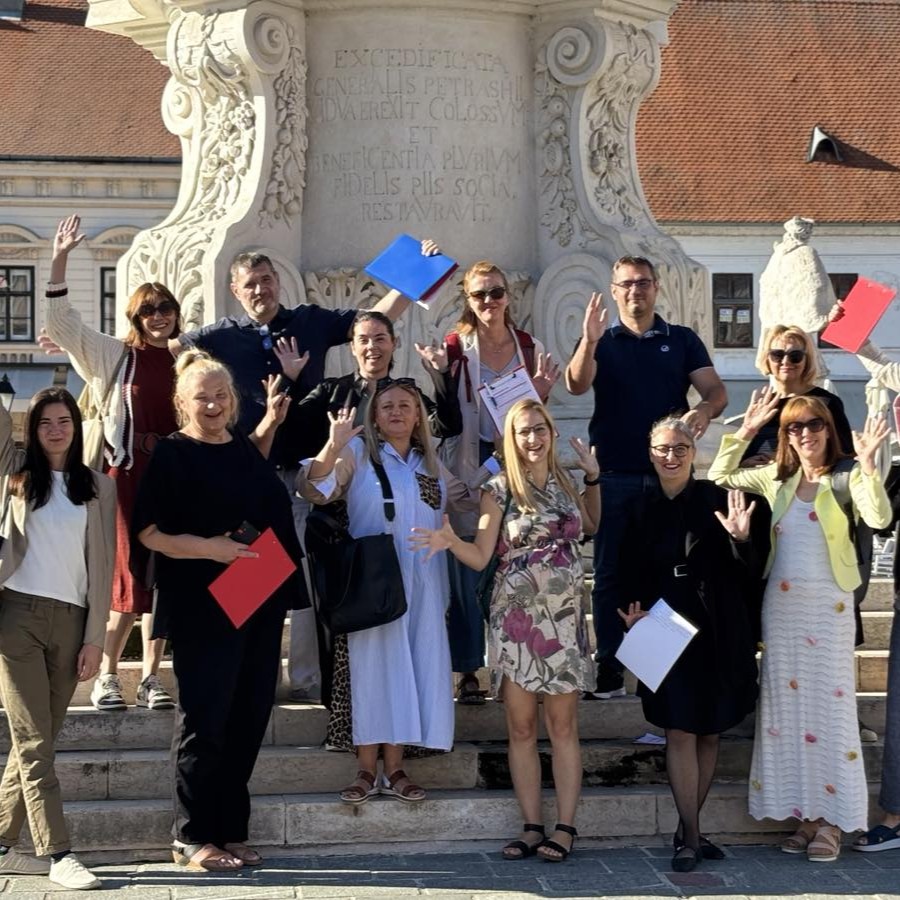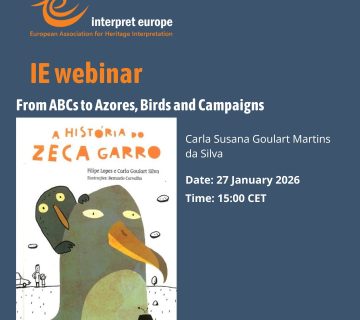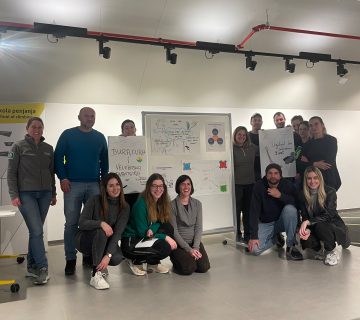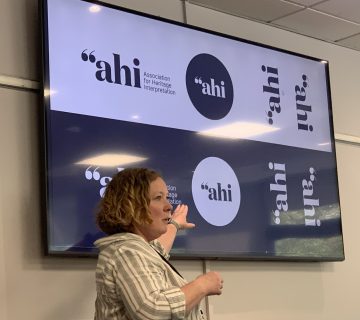Through rain, sun, and teamwork, we learned to see heritage anew, crafting stories, signs, and skills for meaningful interpretation.
The Interpret Europe Certified Interpretive Writer (CIW) course held at the Academy of Arts and Culture in Osijek, Croatia, and organised by the Center for Cultural Heritage, brought together university teachers engaged in the field of cultural heritage. It was an intensive and demanding programme, but one that proved to be deeply rewarding and transformative.
Over the course of several days, we were challenged not only intellectually but also physically. Rain or shine, we worked tirelessly towards a shared goal: to create a single interpretive panel that would embody the principles we had been learning. The process was not always easy, but it was precisely the persistence and effort that made the experience so valuable.
What stood out most was the fresh perspective we gained on heritage phenomena. Instead of looking at heritage through a traditional academic lens, we were encouraged to step into the shoes of our future visitors and users. This shift in perspective, placing the audience at the heart of interpretation, was eye-opening. It reminded us that heritage is not only about objects, sites, or history, but about the meaningful stories we can craft to connect people with them.
Storytelling was at the centre of the course, teaching us how to weave narratives that bring cultural phenomena to life. We practiced interpreting within contexts that highlight meaning rather than just facts. Working in pairs and groups fostered a strong sense of collaboration and mutual support. Peer reviews of our work provided invaluable feedback, sparking new ideas and motivating us to refine our approaches.
At the end of the course, the interpretive panel we produced was more than just a sign, it was a testament to teamwork, resilience, and the new knowledge we had gained. For many of us, it symbolised the transition from thinking about heritage as a subject to be studied to experiencing heritage as a story.
The Osijek course not only equipped us with practical skills but also renewed our inspiration for teaching and professional practice. It reminded us that interpretation is not simply about transferring knowledge, but about creating connections that make heritage relevant, engaging, and alive.
Many heartfelt thanks to the wonderful professional IE trainers for their immense enthusiasm, dedication, passion, and love for heritage interpretation, which they successfully passed on to us during this truly intensive and commendable course. Their ability to balance rigorous expectations with encouragement and joy made a lasting impression. You succeeded in awakening our poetic soul, so much so that even today, verses about certain phenomena still linger in our minds. The memories will stay with us forever, as will the invaluable knowledge you managed to implant in us in such a short time. There was plenty of work, laughter, but also unique shared moments born from the beautiful heritage we interpreted together.
To anyone wishing to deepen their knowledge of heritage, we can wholeheartedly recommend this course, as it will open up new perspectives and perhaps even awaken a hidden talent within you, just as it did for us.
Lana Skender is an assistant professor at the Academy of Arts and Culture in Osijek, Croatia. You can get in touch with her at lanaskndr@gmail.com.
Marta Borić is an assistant professor at the Academy of Arts and Culture in Osijek, Croatia. You can get in touch with her at marta.boric5@gmail.com.
To cite this article: Skender, Lana & Borić Cvenić, Marta (2025) ‘Inspiring journey into heritage interpretation’ in Interpret Europe Newsletter 3-2025, p. 10.
Available online: Newsletter autumn 2025




